Many people experience wisdom tooth pain. Sometimes, it has to do with the eruption of the tooth itself. However, in other instances, it can be indicative of more serious oral health problems, such as cysts or infections.
Wisdom teeth also have a reputation for being problematic because they can spur issues like tooth decay and gum disease, which can also cause pain. However, depending on the underlying cause, there are different ways in which this kind of pain can be managed or treated.
What Causes Wisdom Tooth Pain?
You may experience wisdom tooth pain as a result of the following:
Emerging Tooth
According to a study published in the British Journal of General Practice, the eruption of a wisdom tooth is a very common cause of the pain. It’s possible for this kind of pain to come and go, and you might also find it difficult to eat from that side of the mouth.
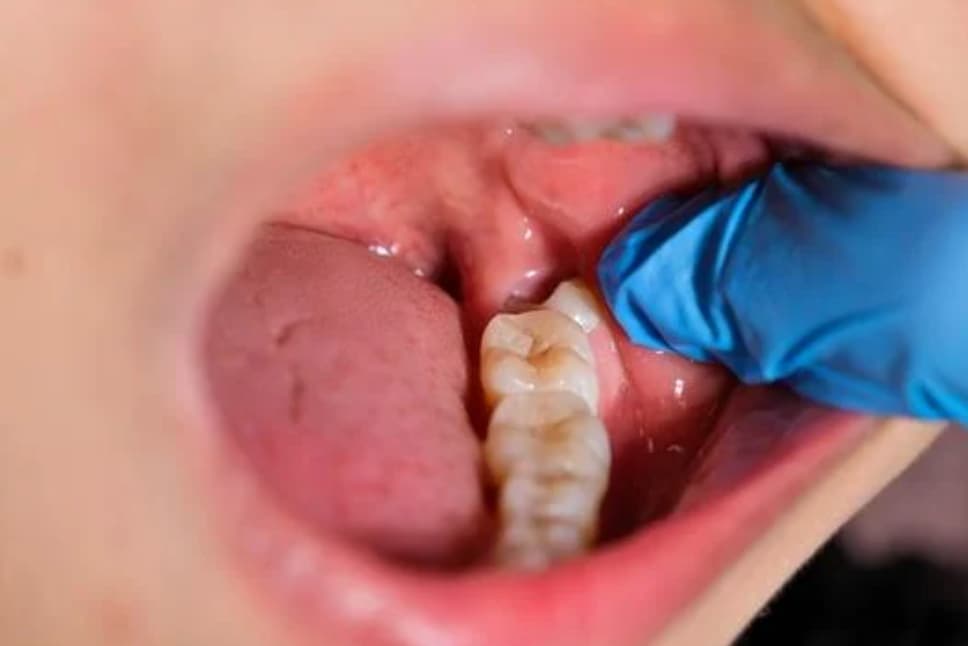
Keep in mind that you shouldn’t so easily dismiss this pain as being innocuous because it can be associated with infection. The above-mentioned study concludes that pericoronitis – inflammation or infection of the tissue surrounding the wisdom tooth – is commonly linked to the eruption of the wisdom tooth.
Impacted Wisdom Tooth
When a wisdom tooth is stuck in the gums or bone and is unable to come out either partially or completely, it’s known as an impacted wisdom tooth. According to InformedHealth.org, while these kinds of teeth don’t usually cause problems, sometimes, they can cause the following:
- Pain
- Swelling
- Inflammation
- Tooth decay
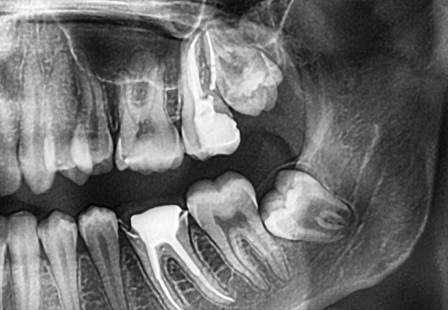
According to the Mayo Clinic, an impacted wisdom tooth can also cause complications, such as damage to the surrounding teeth, as the impacted tooth pushes on it. You can also form cysts, which can damage your nerves, bone and teeth.
Additionally, with impacted wisdom teeth, oral hygiene can also become a problem, which can make your teeth more vulnerable to cavities and gum disease – both conditions that can also cause pain, among other symptoms.
An impacted tooth can harm surrounding teeth. Some people experience a cyst around the wisdom tooth. In addition, the location of wisdom teeth means they are harder to clean, potentially contributing to poor oral hygiene.
Pericoronitis
Pericoronitis is the infection of the gums surrounding the teeth. This condition most commonly occurs in the case of wisdom teeth. It happens when the tooth fails to erupt normally, in that it is impacted. This, in turn, leaves a flap of tissue where “food particles and debris” can get trapped and provide an ideal space for bacteria, as per the Columbia College of Dental Medicine. Among the many symptoms of pericoronitis, such as swelling, bad taste in the mouth, and pus, you can also experience intense pain.
Infection
Infection can occur as a result of having a wisdom tooth, and it can also be a complication of wisdom extraction surgery. In either instances, you might experience wisdom tooth pain as a result of it (among other symptoms).
After a wisdom tooth extraction, you’re expected to experience pain for some time. Your dentist might even prescribe you painkillers for its management. However, this pain should get better with time. If it doesn’t and instead becomes worse, it could be the result of an infection.
As per Guy’s and St Thomas’ NHS Foundation Trust, 1 in 100 people get an infection after their wisdom tooth removal, and it can occur 3-7 days after the surgery.
Tooth Decay
Since brushing and flossing abnormally erupting wisdom teeth isn’t always possible, it makes them more vulnerable to decay. The tooth might be positioned in a way that makes it difficult for you to clean between it. Additionally, there might also be a flap of gum tissue where your toothbrush can’t reach. It can eventually result in the formation of cavities, discolouration, and sensitivity, and you can also experience pain.
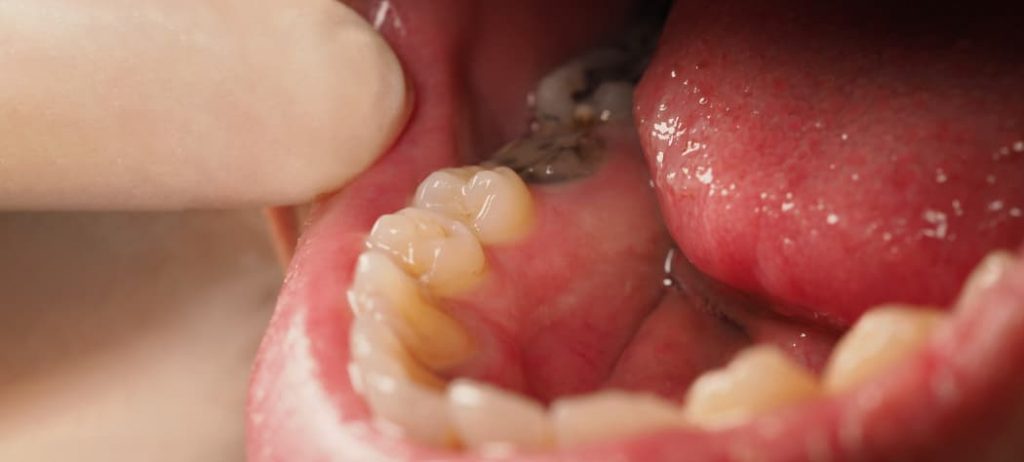
Cyst
Also known as a dentigerous cyst, it’s when there’s a fluid-filled sac around the wisdom tooth (although it’s not always this tooth) that’s still in the process of coming out. It might be asymptomatic, but its inflammation can result in pain. According to the American Dental Association (ADA), cysts can damage tooth roots of teeth that are closeby, or they could also damage the teeth-supporting bone.
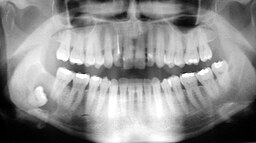
Why Does Wisdom Tooth Pain Come And Go?
The cyclical pain experienced around the wisdom tooth might be the result of its eruption process. It might also be accompanied by soreness and discomfort. In any case, it’s always best to get yourself checked by a dentist. If there’s a developing problem that’s caught early on, it might cause you less pain and harm in the long run.
How Long Does Wisdom Tooth Pain Last?
How long your wisdom tooth pain lasts will depend on its underlying cause. For instance, if you’re experiencing pain due to the eruption of the tooth, it might occur (and recur) until the tooth comes out normally.
For others, like pericoronitis, the Cleveland Clinic states that the condition might “last a few days” if it’s mild, but when it’s more severe, it can persist for weeks. If you don’t get treatment for it, you will experience its symptoms again. Therefore, how long the pain lasts may depend on when you decide to get treatment.
In the case of wisdom tooth extraction surgery, you can experience intense pain in the few days following the surgery, but 2 weeks after, it should get significantly better. In case it doesn’t, you must consult your dentist.
How To Stop Wisdom Tooth Pain?
To stop the pain from wisdom teeth, your dentist will first determine the root cause of the problem. Based on that, a treatment plan will be created for you.
It could involve the use of local anaesthetic gels like benzocaine, medications (nonsteroidal anti-inflammatory drugs or NSAIDs), or if needed, your doctor might also recommend extracting the tooth. It’s not always necessary to have a wisdom tooth extracted. Your dentist will only recommend it if it’s causing you/going to cause you any issues.
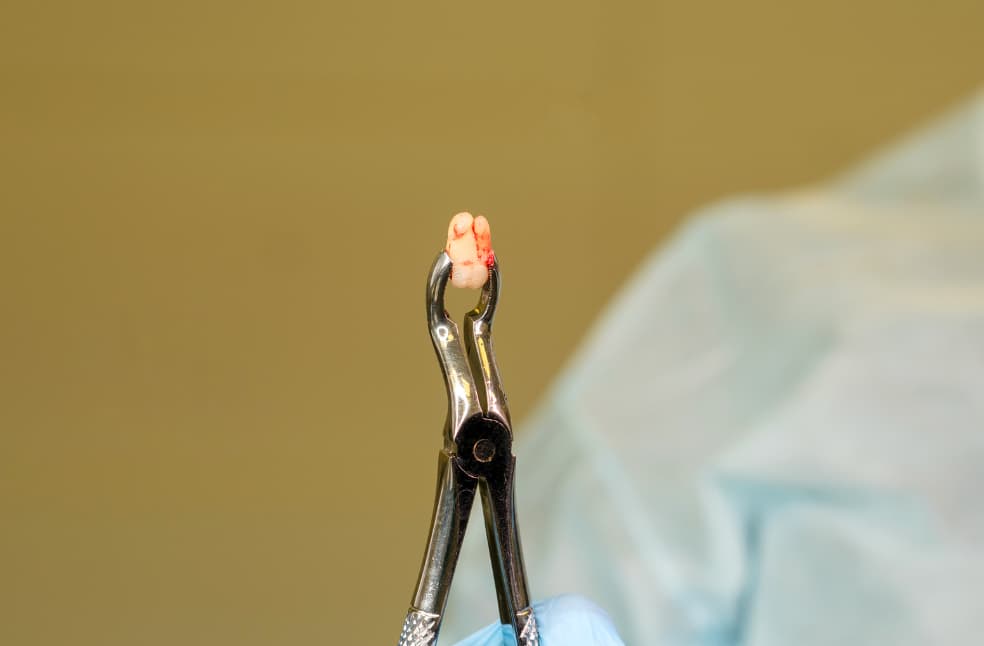
Some home remedies might also be recommended for managing the pain, such as using an ice or heat pack or trying a salt water rinse. But keep in mind that if you’re experiencing wisdom tooth pain, it might be a sign of a serious issue, so you shouldn’t hesitate to get help.
Conclusion
Wisdom tooth pain can be discomforting and disruptive as well because it might make it difficult for you to drink and chew on foods normally. The process of a tooth coming out from the gums can be painful, so the same can happen with a wisdom tooth. However, you shouldn’t ignore this pain, especially if it’s getting worse.
Make sure to consult a board-certified medical professional. They’ll diagnose your problem and present you with the most suitable solution based on your needs.
Reviewed and approved by Dr Izbel Aksit
FAQ
Can a wisdom tooth cause throat pain?
A wisdom tooth can cause pain at the back of the mouth, and it might cause pain in the throat as well. This could be a sign of a complication, such as an infection, so make sure to get yourself checked.
Can wisdom tooth pain cause earache?
According to Patient UK, if your tooth isn’t erupting normally, it’s stuck and coming out at an angle one of the symptoms you might experience is earache.
Is wisdom tooth pain normal?
It’s always best to get checked if you have pain around your wisdom tooth. Sometimes, it can come and go as it’s still emerging, but it can also be due to things such as tooth decay, pericoronitis, impaction, or an infection.
